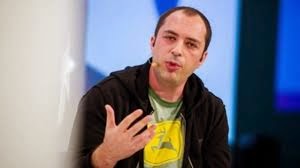This write-up is about two
persons I have come to respect for their conviction and fearlessness in the
pursuit of their dreams. They have not allowed the fear that stops many of us
from effecting the change that we desire in our society from stopping them.
Thus this piece is dedicated to two very influential young persons, Japheth
Omojuwa and Malala Yousafzai, for living their dreams and for inspiring the
rest of us to stand up for positive change.
“I
had two options…Not to speak and die, or to speak and then die. I chose the
second one.” This is the philosophy behind Malala
Yousafzai’s human rights campaign. Born in 1997 in Pakistan, this education and
women’s rights activist was almost killed in an assassination attempt in 2012.
She began blogging for BBC News at age 12 under a pseudonym. She wrote
about her daily activities under Taliban rule and her views on education for
girls. Her profile rose when she started appearing on television to publicly
advocate for female education and as she became more popular, she started
receiving death threats. In fact, death threats against her were published in
newspapers. In 2012, a Taliban gunman boarded Malala’s school bus in northwestern
Pakistan, shot her and two other girls in an attempt to kill her. The bullet
went through her head and neck but she survived and had to undergo
reconstructive operation in the United Kingdom. The Taliban wanted to punish
her for having the courage to stand up for education, freedom and
self-determination, particularly for girls and women and they have threatened
to kill her if she returns to Pakistan.
Malala’s horrible experience
has not stopped her from pursuing her campaign. Listen to her, “They thought that the bullets would
silence us, but they failed…I am the same Malala, my ambitions are the same, my
hopes are the same and my dreams are the same.” A global campaign in
Malala’s name, spearheaded by the United Nations (UN)
Special Envoy for Global Education, Gordon Brown, a former prime minister
of Britain, has now been launched.
In 2013, Time Magazine named her among one of the 100 most influential people in the world. She was also nominated for the 2013 Nobel Peace Prize.
In 2013, Time Magazine named her among one of the 100 most influential people in the world. She was also nominated for the 2013 Nobel Peace Prize.
Japheth Omojuwa has become a beacon of hope and change for many Nigerians and this is why most of us are eager to hear his views on events in the country, especially socio-political event. “I love meeting people, I love to solve problems and I live life like I’m going to die.” This is the mindset that keeps Omojuwa going in the face of challenges. He is arguably the most consistent, most ardent and loudest critic of mis-governance and maladministration in Nigeria. He has become the symbol of the change Nigeria desperately needs and also provides platforms for Nigerians to express their views on happenings in the country. Though he comes across as altruistic and truly passionate about justice and good governance in Nigeria, some people are still skeptical of his motives. The reason for their skepticism is obvious: they have seen individuals, who were once vociferous critics of government turn 360 degrees to join the system they were denouncing only some few months back. But some of us are of the view that as of now, he has not given us any reason to doubt his intentions, and until he does that, he will continue to receive our support and encouragement.
Omojuwa, who possesses the
ability to transmit his passion, galvanise and inspire others to action, was arrested
recently when he led some people to protest the stampede which happened during
the National Immigration Service recruitment exercise. But he has refused to be
deterred, promising more protests and launching missiles at the political class
almost on a daily basis. He is not daunted by the hostile attitude of the
political class and security agencies to his utterances/tweets and he has
stated over and over his resolve to keep campaigning for good governance and
accountability.
It is worthy of note that his activities are being recognised even beyond Nigeria, as he was recently named among the 100 most influential black people on digital/social media in a list including Barack Obama, Beyonce Knowles, Oprah Winfrey, Farrah Gray, among others.
It is worthy of note that his activities are being recognised even beyond Nigeria, as he was recently named among the 100 most influential black people on digital/social media in a list including Barack Obama, Beyonce Knowles, Oprah Winfrey, Farrah Gray, among others.
Malala’s and Omojuwa’s lives
teach the rest of us to face our fears and stand up for our convictions.
PS: This is on a lighter note. It seems to me that one good way to become influential in the world today is have your life threatened because of activism. What do you think?
PS: This is on a lighter note. It seems to me that one good way to become influential in the world today is have your life threatened because of activism. What do you think?
Follow me on twitter
@Aristotle274

































